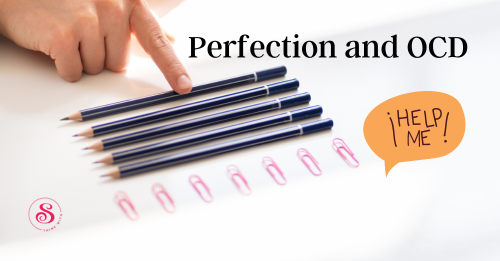Amidst a world that relentlessly pursues perfection, the ancient Japanese philosophy of Wabi-Sabi offers a refuge from the pressures of perfectionism, even for those grappling with obsessive-compulsive tendencies (OCD). Rooted in the acceptance of imperfection and the beauty of transience, Wabi-Sabi holds transformative potential for fostering a balanced, authentic, and fulfilling life. This article delves into how Wabi-Sabi’s wisdom can ease the burden of perfectionism and provide solace for individuals navigating OCD.
Understanding Wabi-Sabi Philosophy
Wabi-Sabi invites us to embrace life’s imperfections, acknowledging that flawlessness is an unrealistic ideal. This philosophy values authenticity, revering the raw beauty found in the unrefined. In the context of perfectionism and OCD, Wabi-Sabi encourages individuals to release the shackles of compulsive behaviors and to appreciate the unique character that imperfections bring to existence.
The Paradox of Perfectionism and OCD
Perfectionism and OCD often lead individuals into a relentless cycle of anxiety and stress. The constant pursuit of flawlessness, coupled with the compulsion to control every detail, can be emotionally draining. Herein lies Wabi-Sabi’s gift: it invites individuals to pause, reflect, and recognize that perfection is an unattainable goal. This realization can ease the emotional burden carried by those trapped in the web of perfectionism and OCD.
A New Perspective on Imperfection
At the heart of Wabi-Sabi is the celebration of the imperfect, reminding us that life’s beauty is often found in its unrefined, weathered aspects. For those dealing with OCD, this perspective shift can serve as a powerful tool. Instead of focusing on the compulsion to perfect every detail, individuals can learn to appreciate the unique and unpolished moments that form the tapestry of life.
The Beauty of Transience and Release
Wabi-Sabi’s emphasis on the transient nature of existence offers solace to those grappling with the demands of perfectionism and the constraints of OCD. By embracing the impermanence of things, individuals can gradually release the grip of obsessive thoughts and compulsive actions. This release allows for a newfound sense of freedom, enabling individuals to engage with life’s moments more authentically.
Mindfulness as an Antidote
Mindfulness, a key component of Wabi-Sabi, serves as a potent antidote to the pressures of perfectionism and OCD. By cultivating awareness of the present moment, individuals can ground themselves, stepping away from the spiral of anxious thoughts and repetitive behaviors. This practice empowers them to engage in life without the constant pursuit of flawlessness.
A Journey Towards Self-Compassion
Wabi-Sabi fosters self-compassion by teaching that imperfection is not synonymous with inadequacy. Individuals learn to treat themselves kindly, forgiving their perceived shortcomings. This shift nurtures healthier self-esteem and self-worth, offering respite to those struggling with the relentless demands of perfectionism and the rigidity of OCD. For those ensnared in the clutches of perfectionism and OCD, Wabi-Sabi emerges as a beacon of hope. By recognizing the beauty in imperfection and embracing the transient nature of existence, individuals can gradually liberate themselves from the pressures of unattainable standards. Through mindfulness, self-compassion, and an appreciation for the unpolished, Wabi-Sabi can be a guiding light on the journey towards authenticity, balance, and a more serene existence.
References
- Turner, D. T. (2008). Perfectionism and Obsessive-Compulsive Disorder. Behavior Modification, 32(1), 77-97.
- Okazaki, S. (2017). A Conceptual Model of Wabi-Sabi and Its Application to Social Work Practice. Journal of Baccalaureate Social Work, 22(1), 1-19.
- Juniper, A. (2003). Wabi Sabi: The Japanese Art of Impermanence. Tuttle Publishing.
- Powell, R. (2019). The Power of Imperfection: How the Aesthetic of Wabi-Sabi Can Help Us Find Meaning and Resilience in a Complex World. Hachette UK.

